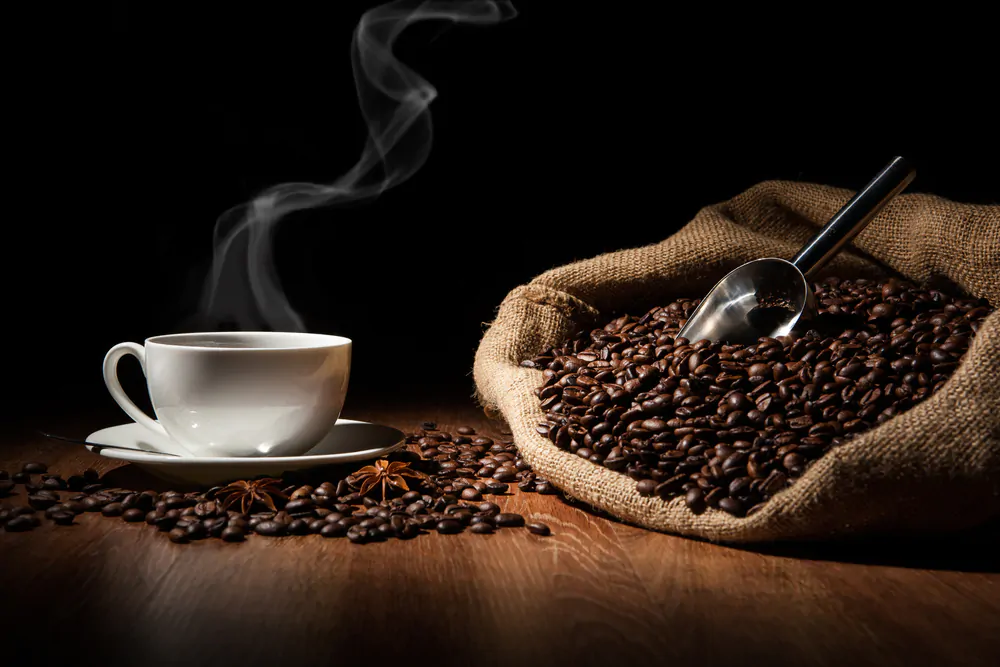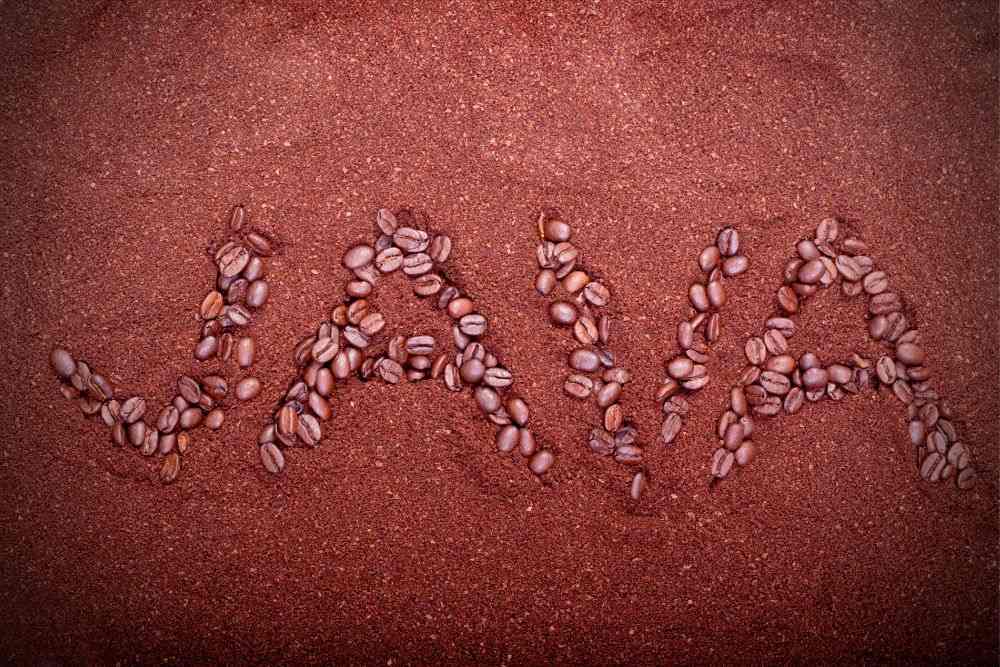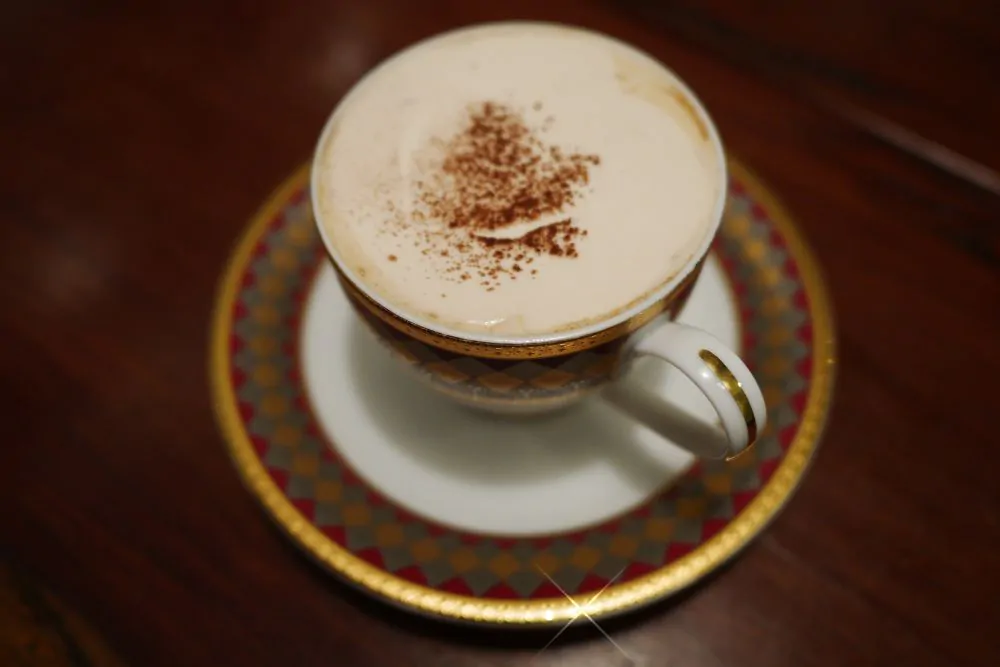Coffee goes by many names, but Java has persisted for centuries. In this article, we discuss why is coffee called java.

There are many nicknames for coffee, including “cup of Joe” or “bean water”. Many people also use the nickname “Java” for coffee.
Java refers to the island of Java between Sumatra and Bali, where the Dutch successfully introduced coffee trees in the 1690s. Coffee derives this name from these Dutch coffee growers.
Coffee And Its Many Names
There are many words for coffee lovers. Here is a selection of some of the most popular coffee words.
Mud
A cup of mud usually refers to a particularly strong cup of coffee. The word ‘mud’ refers to the texture of the coffee, which in this case is thought to be so thick it resembles dirt.
Joe
There are several theories where the phrase ‘a cup of Joe’ came from, with some linking it back to Joe being a common name and coffee being the drink of the everyman.
Forty Weight
Forty weight is a term commonly used by truckers when talking about coffee over their radios. The term refers to the bags in which coffee is purchased.
Brain Juice
This one is self-explanatory, touching on the supposed help that coffee can give you when you need to focus.
Jitter Juice
This is another term that speaks for itself. It’s a fun evolution of the ‘brain juice’ term and refers to what happens when you have one too many cups.
A Cup Of Java: More Than An Island
The word java supersedes all of the above coffee’s nicknames, with a ‘cup of Joe’ the only one that comes close. Java refers to the island of Java, where the Dutch successfully introduced coffee trees in the 1690s. Researchers have given details of an “ambitious and agriculturally minded” Dutchman called Hendrick Zwaardecroon, who helped the process move forward after an initial attempt was thwarted by flooding.
Its introduction was a great success for the Netherlands (although the indigenous population did not reap the benefits). By 1725, over one million pounds of coffee were being sold in Amsterdam, with over five million pounds being sold by 1780.
The sales of coffee from Java continued to grow until it was supplying around a quarter of the world’s supply in 1855. Although Java would never have that kind of market share again, it had made enough of an impact that the terms ‘java’ and ‘coffee’ had already become synonymous.
Javaphile Meaning

Javaphile refers to someone passionate about coffee… and in some cases, the Java programming language.
In the 1860s, Osborn’s Celebrated Prepared Java Coffee became the first packaged ground coffee to be sold to the American market. Although coffee was now being imported from other locations, the term ‘Java’ was closely associated with high-quality produce.
Peter Giuliano, the chief research officer at the Specialty Coffee Association, told The New York Times that Java’s importance as a coffee growing location at that time couldn’t be overstated.
He said: “(The naming of this brand) shows how important the place name ‘Java’ was in communicating coffee quality.”
Although Java would never have the kind of market share it had in the late 1800s again, it had made enough of an impact that the terms ‘java’ and ‘coffee’ had already become synonymous. The Indonesian island of Java is proud of its roots. Coffee is still a big part of the lifestyle on the densely populated volcanic island.
Giuliano added: “I have personally traveled to Java on multiple occasions. I can testify to a thriving coffee community there, including a cool coffee-consuming culture.”
A Cup Of Java In Popular Culture
Throughout the decades since Western countries have embraced other coffee-growing destinations, but the term java remains fresh in their mind and readily associated with coffee of any kind and from any destination. Just take a look at these references to why is coffee called Java…
1. Java Jive, 1940
“I love coffee. I love tea. I love the Java Jive, and it loves me. Coffee and tea and the java and me. A cup, a cup, a cup, a cup, a cup (boy!)”
The above are the lyrics to a popular song from the 1940s, made popular by The Ink Spots.
2. The Philadelphia Bulletin 1947
“In their white monkey suits, stethoscopes dangling from a pocket, those young Jefferson interns who slip out for a late morning cup of java at the 10th Street luncheonette across from the hospital play the pinball machines with an intense, professional, operating room gaze.”
A report from The Philadelphia Bulletin detailed the day-to-day activities of young interns, including the detail of going for a cup of coffee (or java, as they put it).
3. The New York Times crossword puzzle
As of 2022, “Java” had been used in 128 New York Times crossword puzzles. The clues for Java have included “Jitter Juice” and “Where Jakarta is.” It first appeared in the New York Times Crossword in 1942.
4. Java Programming Language
When Java programming language came out in the 90s, the term ‘java’ was still closely associated with coffee. In fact, that even played a part in the naming of the code that powers much of the software being used today.
Although Georges Saab, the vice president of development for Java at Oracle, said that “the goal was a name that sounded revolutionary, lively, dynamic and was easy to spell and remember,” his colleague Jim Waldo, who also worked on the project, has been recording as saying that the name was perfect because “programmers drink a lot of java.”
5. Java Blues By The Band
“A taste of Java is like a volcanic rush. Nobody’s going to stop me from drinking too much
Costs many more than you care to pay. But money is nothing, compared to a fired-up day
Don’t try to cheat, it’s impossible to beat. The only pick-me-up that’s here to stay.”
Canadian-American roots rock group The Band had a song detailing their love of all things Java. They originally released this song in 1977. When referring to coffee, Java is a term that goes back to the 1600s.
Initially, it was associated with the location where the coffee was being produced, before, it became associated with quality coffee, and now it’s simply a synonym of coffee.
The next time a friend asks you for a cup of Java, you can fill them in that they may be drinking a cup of Kenyan, Brazillian, or Columbian. Alternatively, you can just accept that a cup of Joe and a cup of Java essentially mean the same thing now. If you like this article, learn why tea has so many names.
What Coffee Is Still Grown In Java?
Today, high-quality Arabica coffee is still grown in Java, specifically on the Ijen Plateau at the eastern end of Java. The coffee is primarily grown on five large plantations built by the Dutch back in the 18th century. These plantations produce excellent coffee that meets the standards of specialty-grade coffee.
This coffee is typically used as one component in the traditional and ever-popular Mocha Java blend.
Conversely, some estates choose to age their coffees for up to three to five years, during which time the beans turn from green to light brown. The aging process increases flavor while also decreasing acidity, resulting in a deliciously mild cup of coffee. If you’re interested in tasting these aged coffees, be on the lookout for the names Old Government, Old Brown, or Old Java.
What Is Mocha Java?

The term mocha Java is confusing for modern coffee drinkers since many associate the name with a type of coffee beverage. However, Mocha Java refers to a coffee blend, of which one-half comes from coffee produced in Yemen and the other from coffee produced in Java. The port city of Mocha, in Yemen, was a major marketplace for coffee from the 15th to 18th centuries, which is why the term also became synonymous with coffee over time.
Coffee History Guides
A Short History Of Italian Coffee
What Is The History Of Turkish Coffee
Middle Eastern Coffee Culture And History – Our Guide

